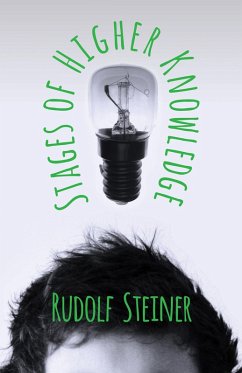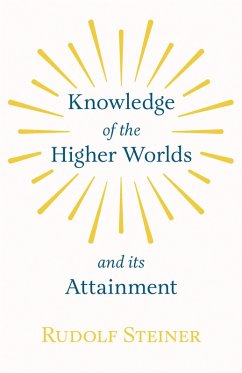
The Crown of Individuality (eBook, ePUB)
Versandkostenfrei!
Sofort per Download lieferbar
7,99 €
inkl. MwSt.
Weitere Ausgaben:

PAYBACK Punkte
4 °P sammeln!
This is William George Jordan's 1909 work, "The Crown of Individuality". This volume deals with the importance of individuality and explores the ways in which it can affect one's life and general happiness. A timeless guide to mental training for self-betterment, "The Crown of Individuality" is not to be missed by those with an interest in improving their mental well-being, and it would also make for a fantastic addition to collections of vintage literature of this ilk. William George Jordan (1864 - 1928) was an American lecturer, editor, and essayist. He is most famous for his self-help books...
This is William George Jordan's 1909 work, "The Crown of Individuality". This volume deals with the importance of individuality and explores the ways in which it can affect one's life and general happiness. A timeless guide to mental training for self-betterment, "The Crown of Individuality" is not to be missed by those with an interest in improving their mental well-being, and it would also make for a fantastic addition to collections of vintage literature of this ilk. William George Jordan (1864 - 1928) was an American lecturer, editor, and essayist. He is most famous for his self-help books, especially those on the subject of mental training and cognitive improvement. Other notable works by this author include: "Mental Training" (1894), "The Kingship of Self-Control" (1898), and "The Majesty of Calmness" (1900). Contents include: "The Crown of Individuality", "No Room for Them in the Inn", "Facing the Mistakes of Life", "The Sculptured Figures of Society", "The Hungers of Life", "Throwing Away Our Happiness", "At the Turn of the Road", "Sitting in the Seat of Judgement", "The Inspiration of Possibilities", etc. Many vintage books such as this are becoming increasingly scarce and expensive. We are republishing this volume now in a modern, high-quality edition complete with a specially commissioned new biography of the author.
Dieser Download kann aus rechtlichen Gründen nur mit Rechnungsadresse in A, D ausgeliefert werden.













